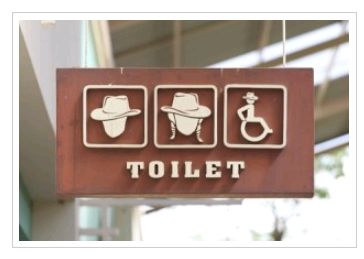For the last few months, I've been posting about bathroom access policies and the problems employers run into when they act as the potty police. See my posts here and here.
Now, comes news that a Houston's Equal Rights Ordinance was soundly defeated on Tuesday. The HERO ordinance (as it has become known) would have made it illegal to discriminate against someone based on 15 different "protected characteristics," including sex, race, religion, sexual orientation and gender identity. These employment/housing/public accommodation ordinances have become quite common around the country, including here in Florida (see my recent posts on Wellington and Osceola County and expansion of the Palm Beach County ordinance).
As the Texas Tribune reported, the coalition that defeated the HERO ordinance focused its advertisement and campaign on bathroom fears:
Dubbing it "the bathroom ordinance," they argued the ordinance's gender identity protection would allow sexual predators to enter women's bathrooms. Outside of polling places, signs read "NO Men in Women's Bathrooms." And television ads bankrolled by opponents depicted a young girl being followed into a bathroom stall by a mysterious older man.

Does the defeat of HERO by the Texas bathroom brigade mean that Houston employers are off the hook on the bathroom issue? More than likely, no. The Equal Employment Opportunity Office and Occupational Safety and Health Administration have both indicated through recent enforcement actions and policy and rules notifications that bathroom access and policies restricting bathroom access based on birth gender are on their radar screen. While state and local legislators are playing catch up to Federal agency enforcement trends, best practices is for employers is to permit transgender employees to use the restroom for their presenting gender.
The content of this article is intended to provide a general guide to the subject matter. Specialist advice should be sought about your specific circumstances.

